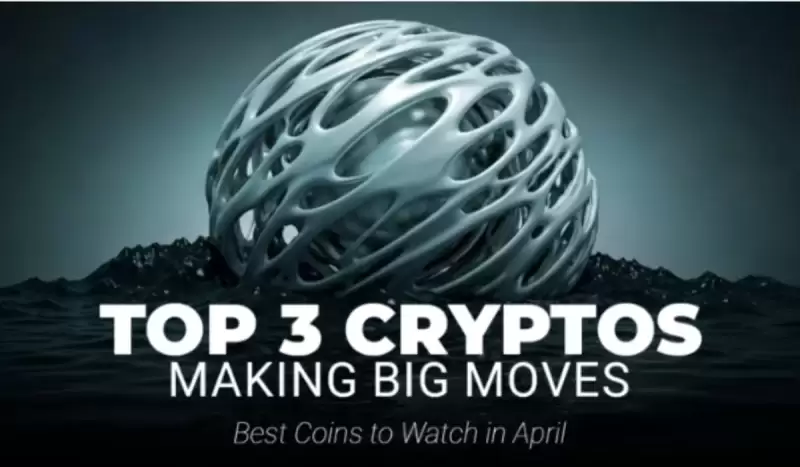 |
|
 |
|
 |
|
 |
|
 |
|
 |
|
 |
|
 |
|
 |
|
 |
|
 |
|
 |
|
 |
|
 |
|
 |
|
この社説は、先週の今週のレビューニュースレターの版からのものです。毎週のニュースレターを購読して、編集を終了しました。

In a surprising twist, it’s not the crypto participants but Wall Street giants who are now championing decentralization, transparency, and immutability.
驚くべきひねりを加えて、地方分権、透明性、不変性を擁護しているのは、暗号の参加者ではなく、ウォール街の巨人です。
This editorial is from last week’s edition of the Week in Review newsletter. Subscribe to the weekly newsletter to get the editorial the second it’s finished.
この社説は、先週の今週のレビューニュースレターの版からのものです。毎週のニュースレターを購読して、編集を終了しました。
Crypto’s Founding Principles Are Being Kept Alive—By Institutions
Cryptoの設立原則は、機関によって生かされています
The world is wrestling with Trump’s on-and-off tariffs and their attendant side effects, such as retaliatory tariffs, whipsawing markets, and what appears to be trouble in the U.S.’s sovereign bond market. The speed with which this is all happening is dizzying, and makes commenting on it feel futile. A day later, the world can look very different
世界は、トランプのオンとオフの関税と、報復関税、鞭打ち市場など、米国の主権債券市場で問題と思われるものなど、彼らの付随する副作用と格闘しています。これがすべて起こっている速度はめまいがあり、それについてコメントすることは無駄に感じます。 1日後、世界は非常に異なって見えることがあります
So instead, I’m going to write about a slower-moving trend I’ve noticed the past couple of months: As large swaths of crypto increasingly come to resemble Sodom and Gomorrah, traditional financial institutions are embracing crypto, and it seems for the right reasons.
代わりに、私は過去数ヶ月に気づいた動きの遅い傾向について書くつもりです。暗号の大規模な帯がソドムとゴモラに似ているようになるにつれて、伝統的な金融機関は暗号を受け入れており、それは正しい理由であるようです。
Traditional finance institutions, historically cautious or even dismissive of crypto, are championing foundational crypto ideals—decentralization, transparency, and immutability—while many newer crypto enthusiasts, those entering post-2020, have largely abandoned these very principles in favor of pure speculation and profit-driven motives.
歴史的には慎重または暗号を否定する伝統的な金融機関は、2020年以降に入る多くの新しい暗号愛好家であるが、純粋な憶測と利益運命の動機を支持してこれらの原則を大部分放棄しましたが、中心分離、透明性、不変性など、基本的な暗号の理想を擁護しています。
Institutional figureheads now regularly extol crypto’s revolutionary qualities. They stress the benefits of decentralization to improve security, transparency to foster trust, and immutability to protect against fraud. This rhetoric aligns them closer to the OG crypto userbase than today’s typical crypto participant.
制度上の姿は現在、Cryptoの革新的な資質を定期的に称賛しています。彼らは、セキュリティを改善するための地方分権化の利点、信頼を促進するための透明性、および詐欺から保護するための不変性を強調しています。このレトリックは、今日の典型的な暗号参加者よりもOG Cryptoユーザーベースに近づいています。
Take for example Blackrock’s Head of Digital Assets Robbie Mitchnick, who recently said at the Digital Asset Summit about why Blackrock started with Ethereum for BUIDL, a tokenized money market fund.
たとえば、BlackRockのデジタル資産の責任者であるRobbie Mitchnickは、最近Digital Asset Summitで、BlackRockがトークン化されたマネーマーケットファンドであるBuidlのEthereumを始めた理由について述べました。
There was no question that the blockchain we would start our tokenization on would be Ethereum and that’s not just a Blackrock thing. That’s the natural default answer. That’s really important… Clients have clearly made the choice that they really do value decentralization, credibility, and security. And that is a great advantage that Ethereum continues to have.
トークン化を開始するブロックチェーンがイーサリアムであり、それは単なるブラックロックではないことは間違いありませんでした。それが自然なデフォルトの答えです。それは本当に重要です...クライアントは、彼らが本当に分散化、信頼性、セキュリティを本当に価値があるという選択を明確にしました。そして、それはイーサリアムが引き続き持っている大きな利点です。
Conversely, it seems to me that most recent crypto entrants are defined primarily by their skepticism and speculative appetite. A kind of crypto nihilism. There are of course many reasons for this, but one certainly comes from a string of failures, or perceived failures, within the crypto industry. Setting aside the world-class fraudsters like SBF, Richard Heart, and Do Kwon, even good decentralized projects have had troubles.
逆に、最新の暗号の参入者は、主に彼らの懐疑論と投機的食欲によって定義されているように思えます。一種の暗号ニヒリズム。もちろん、これには多くの理由がありますが、1つは暗号業界内の一連の障害または知覚された障害から確かに来ています。 SBF、Richard Heart、Do Kwonなどの世界クラスの詐欺師を別として、適切な分散プロジェクトでさえも問題を抱えています。
Ethereum is probably the most well-known one. In 2016, a vulnerability in The DAO, an early decentralized investment fund, allowed an attacker to drain around $60 million worth of ETH. In response, the Ethereum community, led by Vitalik Buterin, voted to execute a controversial hard fork to reverse the hack and return the funds. Essentially, they rolled back the chain, immutability be damned.
イーサリアムはおそらく最も有名なものです。 2016年、早期の分散化された投資ファンドであるDAOの脆弱性により、攻撃者は約6,000万ドル相当のETHを排出することができました。これに応じて、Vitalik Buterinが率いるEthereumコミュニティは、議論の余地のあるハードフォークを実行してハックを逆転させ、資金を返すことに投票しました。本質的に、彼らはチェーンを転がし、不変性は気の毒になりました。
Many other decentralized projects have struggled to deliver on their decentralization promises. MakerDAO’s decentralized DAI stablecoin became largely backed by centralized stablecoins after the March 2020 market puke, undermining its claims to censorship resistance. Layer-2 solutions often function as glorified multi-signature wallets, where a handful of individuals retain control. Solana’s repeated network halts and manual restarts have challenged the credibility of its decentralization claims. More recently, Hyperliquid delisted a token at a price far below the current market price after an attacker attempted to exploit an illiquid market on the exchange. All of this ostensibly makes it seem like crypto boasts of decentralization while in reality not caring about it.
他の多くの分散プロジェクトは、地方分権化の約束を実現するのに苦労しています。 Makerdaoの分散型Dai Stablecoinは、2020年3月の市場Pukeの後、集中型Stablecoinsに支持され、検閲抵抗に対する主張を損ないました。レイヤー2溶液は、しばしば栄光の多いマルチシグネチャウォレットとして機能し、そこでは少数の個人が制御を保持します。 Solanaの繰り返しのネットワークの停止と手動の再起動は、分散化の請求の信頼性に挑戦しています。最近では、Hyperliquidは、攻撃者が取引所で非流動市場を悪用しようとした後、現在の市場価格をはるかに下回る価格でトークンを上場しました。これはすべて、表面上は、暗号が分散化を誇っているように見えるが、実際には気にかけないように見える。
This shift in crypto culture is also massively influenced by broader shifts in sentiment. Faced with economic disenchantment, widespread institutional mistrust, and deep financial insecurity, young people increasingly see stock trading, real estate, and crypto as a means to escape what appears to be a rigged system. From this perspective, foundational crypto ideals such as immutability can seem naïve or even irrelevant.
暗号文化のこの変化は、感情のより広範な変化によっても大きな影響を受けます。経済的幻滅、広範な制度的不信、そして深い経済的不安に直面して、若者は在庫取引、不動産、および暗号を、装備されたシステムのように見えるものを逃れる手段としてますます見ています。この観点から、不変性などの基本的な暗号の理想は、ナイーブまたは無関係に見えることさえあります。
On the other hand, traditional financial institutions entering crypto come from a completely different vantage point. First of all, they don’t have a get-rich-quick attitude–they’re already filthy rich. They are looking for and investing in crypto projects that will be value-creating, not extractive.
一方、暗号に入る伝統的な金融機関は、まったく異なる見晴らしの良い場所から来ています。まず第一に、彼らは豊富な態度の態度を持っていません。彼らはすでに不潔な金持ちです。彼らは、抽出ではなく、価値を創造する暗号プロジェクトを探して投資しています。
Second, they’ve got a low time preference, meaning they measure investments in years and decades. On that timescale you can see crypto is real innovation promising substantial practical benefits. They don’t get frustrated by the seeming lack of progress in the past couple of years, because they can see the tremendous progress made in 16 years.
第二に、彼らは低い時間の好みを持っています。つまり、何年もの間に投資を測定します。そのタイムスケールでは、暗号が実質的な利点を約束する真のイノベーションであることがわかります。彼らは、過去数年間の進歩の欠如に不満を感じません。なぜなら、彼らは16年間で行われた大きな進歩を見ることができるからです。
Third, these institutions are more pragmatic. They understand that decentralization can take time to achieve, look at the decentralization progress of Ethereum since the hard fork, Solana’s much improved validator set, and the fact that Hyper
第三に、これらの機関はより実用的です。彼らは、分散化に時間がかかることを理解しています。ハードフォーク、ソラナの大幅な改善されたバリデーターセット以来のイーサリアムの地方分権化の進行、およびハイパーの事実を見てください
免責事項:info@kdj.com
提供される情報は取引に関するアドバイスではありません。 kdj.com は、この記事で提供される情報に基づいて行われた投資に対して一切の責任を負いません。暗号通貨は変動性が高いため、十分な調査を行った上で慎重に投資することを強くお勧めします。
このウェブサイトで使用されているコンテンツが著作権を侵害していると思われる場合は、直ちに当社 (info@kdj.com) までご連絡ください。速やかに削除させていただきます。
-

-

-

-

-

-

-

-

-

- ビットコイン(BTC)の価格は、86,500ドルのゾーンを徐々に上回っています。
- 2025-04-21 13:00:13
- BTCはペースを上げており、短期的にはより高く続く可能性があります。

























































